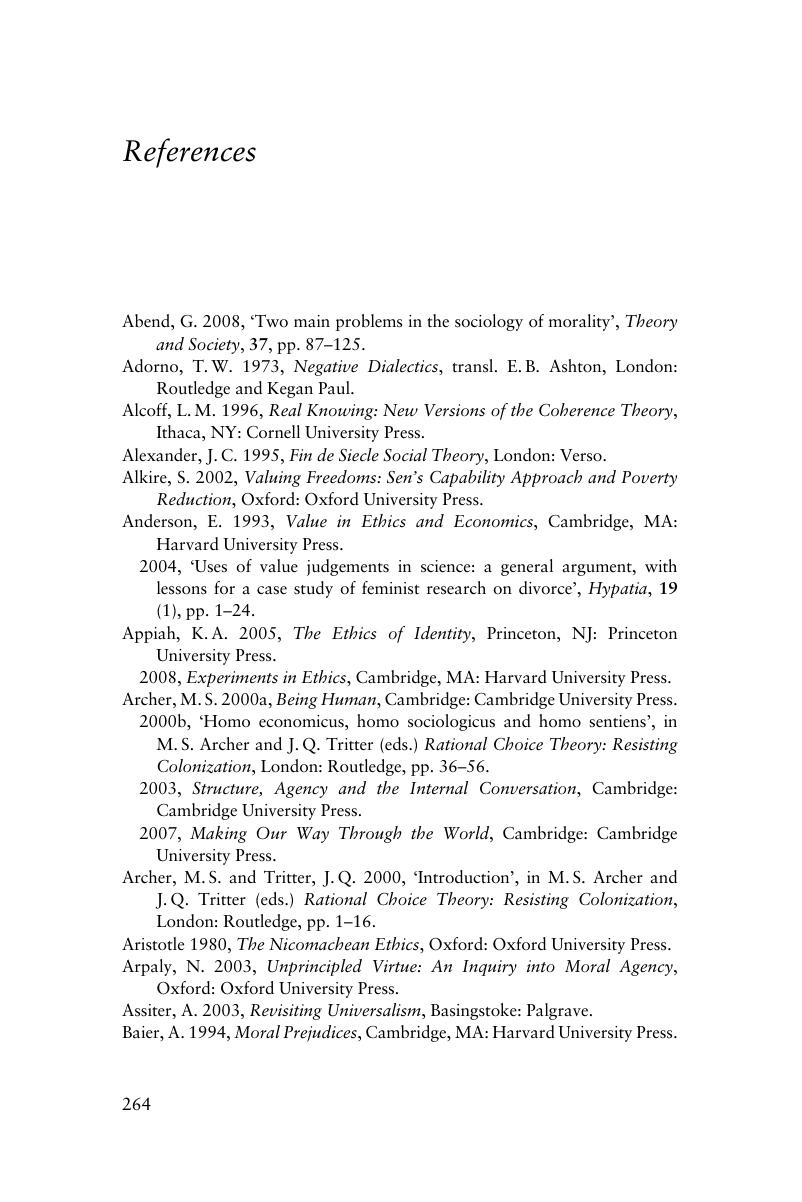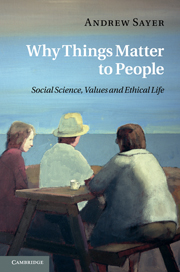Book contents
- Frontmatter
- Contents
- Acknowledgements
- 1 Introduction: a relation to the world of concern
- 2 Values within reason
- 3 Reason beyond rationality: values and practical reason
- 4 Beings for whom things matter
- 5 Understanding the ethical dimension of life
- 6 Dignity
- 7 Critical social science and its rationales
- 8 Implications for social science
- Appendix: Comments on philosophical theories of ethics
- References
- Index
- References
References
Published online by Cambridge University Press: 05 June 2012
- Frontmatter
- Contents
- Acknowledgements
- 1 Introduction: a relation to the world of concern
- 2 Values within reason
- 3 Reason beyond rationality: values and practical reason
- 4 Beings for whom things matter
- 5 Understanding the ethical dimension of life
- 6 Dignity
- 7 Critical social science and its rationales
- 8 Implications for social science
- Appendix: Comments on philosophical theories of ethics
- References
- Index
- References
Summary

- Type
- Chapter
- Information
- Why Things Matter to PeopleSocial Science, Values and Ethical Life, pp. 264 - 278Publisher: Cambridge University PressPrint publication year: 2011



